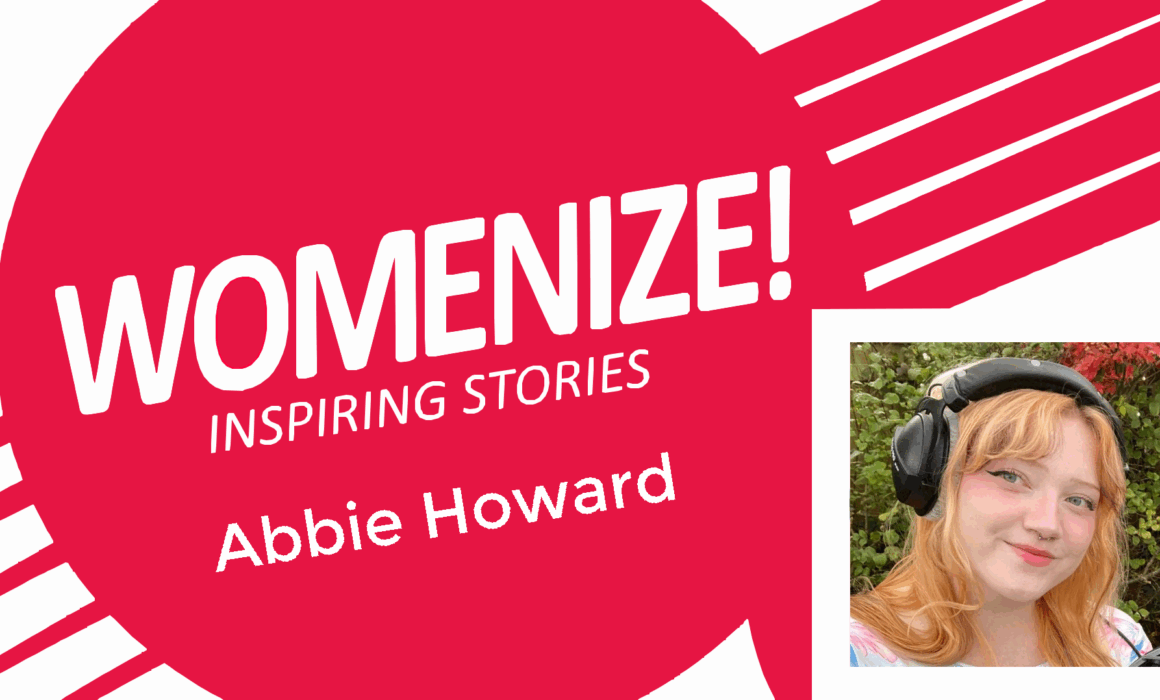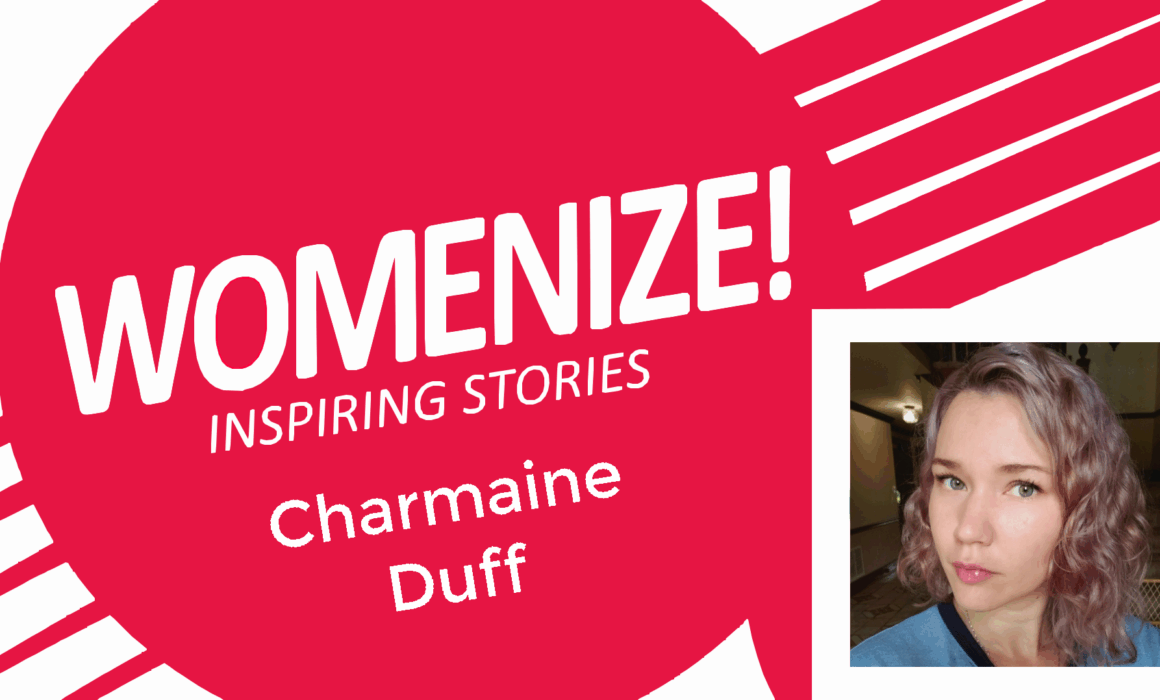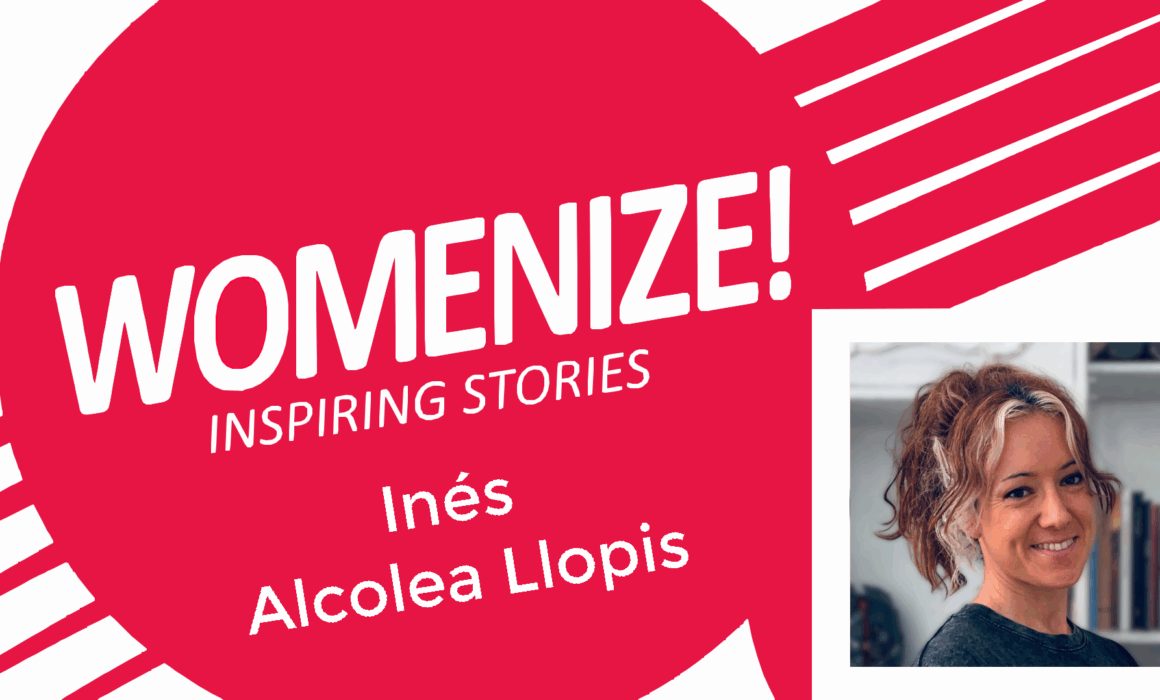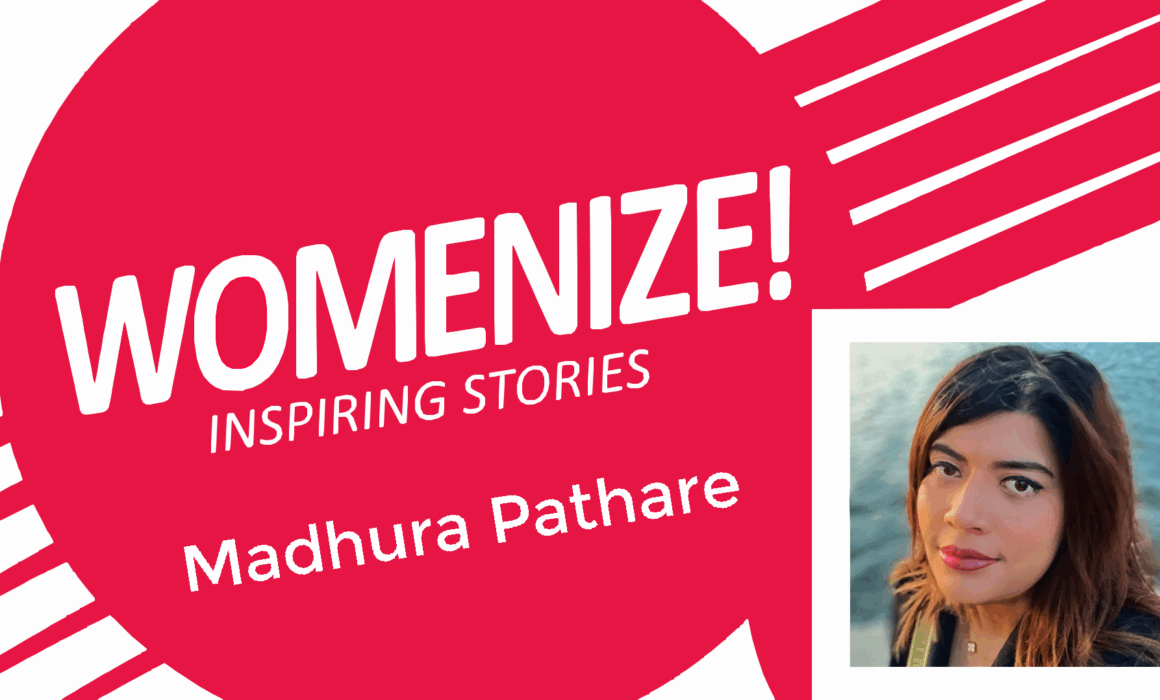Abbie Howard – Womenize! – Inspiring Stories
Womenize! – Inspiring Stories is our weekly series featuring inspirational individuals from games and tech. For this edition we talked to Abbie Howard, Audio Designer at Rebellion. She speaks how her background in music composition shapes her emotionally driven approach to game sound design, blending creativity and technical skill to craft immersive, accessible, and deeply personal audio experiences that guide players and bring game worlds to life. Read more about Abbie here:
Hi Abbie! You’ve built a career that bridges both music composition and interactive audio design. From creating orchestral scores for BBC and Eddsworld, to shaping the soundscapes of games like Atomfall and Blindfire. How has your background in music composition influenced the way you approach storytelling and emotion through sound in games today?
Having a background in music composition helps a career in audio design in so many ways. It especially makes you more conscious of tonality and space within a mix, you start thinking, ‘will these sounds work together, or will they clash sonically? Does it feel too busy, or too sparse? What am I trying to tell the player?’. It helps you think about the player’s emotional response and what you want them to feel moment to moment.
A lot of people tend to associate emotional storytelling purely with music, but sound design carries just as much emotional weight, often using similar terminology and techniques. For example, say you’re designing an alarm sound effect. What’s the intention behind it? If it’s negative, you want the player to feel panicked or uneasy, so you might make it loud, distorted, with a descending pitch and urgent repetition to signal danger. But if the alarm is positive, like activating a machine or completing a puzzle, it could rise in pitch or form a satisfying tonal pattern that feels rewarding and complete. It’s the same thinking as in composition- lower, drawn-out pitches or descending notes can feel foreboding, while upward movement feels hopeful or triumphant. That mindset naturally feeds into things like UI and systemic sound design, where you’re guiding the player through sound, helping them instinctively understand what’s positive, negative, allowed, or restricted.
Your work shows a strong personal touch even the Assistive Battle Interface in Blindfire was named “A.B.I.” after you! That’s such a wonderful nod to your contribution and creativity. What does it mean to you to bring personality and identity into your audio work, and how do you balance creative expression with the technical demands of game development?
That really means a lot! I think personality is what makes sound design memorable. Everyone’s work carries their own taste and uniqueness. That’s something I really appreciate, like when people do creative redesign challenges, you can see how differently everyone interprets the same moment. It reminds me that sound design is deeply personal, and that individuality is what makes a game world feel alive. I see the technical side of game development as something that enables creativity rather than limits it. Creative expression comes through designing unique, emotionally resonant sounds, but to bring those to life in-game, I need to understand the technical systems that support them. For example, when I’m implementing adaptive audio in Wwise or Unreal, it’s good to think about how parameters, states, or real-time effects can enhance the player’s emotional journey. A fairly common example in games is using a parameter, such as a player’s health, to adapt when it becomes dangerously low. We need a way to convey that urgency to the player so they can pay attention to it. So maybe the world’s audio around you will become muffled as if your senses are tunneling, you begin to hear your breath and heartbeat, and that increases in intensity the lower the health. I also think, since game development is such a collaborative process, getting close with other departments is really fundamental to aligning on ideas and presentation, and also just makes the job way more fun!
You’re also an advocate for accessibility and knowledge sharing, volunteering with SpecialEffect and supporting others in their growth. What advice would you give to other creatives hoping to enter game audio?
I think the best advice I could give is to stay curious and open! Game audio is such a broad field. You’re constantly learning, whether it’s technical systems like Wwise and Unreal, or creative decisions about how sound supports storytelling. Don’t be afraid to experiment, ask questions, and share what you learn with others. There’s a lot of fantastic resources out there and I would say the game audio community is incredibly welcoming and supportive of one another. Volunteering with SpecialEffect really reminded me how much games, and sound, can impact people’s lives. Accessibility and inclusivity should be part of our creative thinking from the start, not an afterthought. Even small changes in sound design can make an experience more intuitive and enjoyable for different players. And finally, don’t get discouraged if progress feels slow. Everyone in game audio starts somewhere, it’s more about persistence, building genuine connections, and being kind to yourself as you grow 🙂




